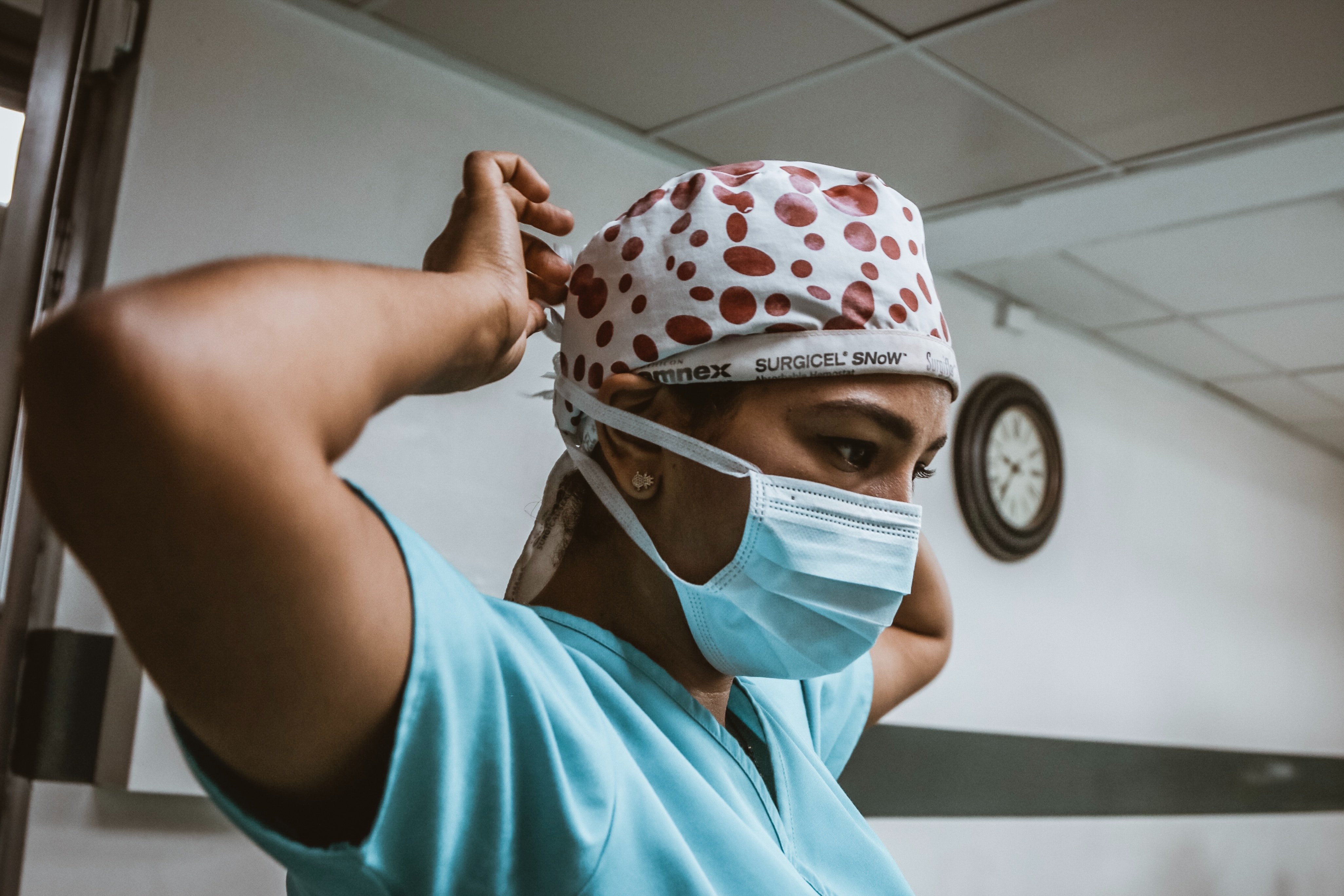
Africa Health Summit: a look at African healthcare progress and complications
CrossBoundary Advisory’s healthcare team was pleased to participate in IQVIA’s Africa Health Summit in Kigali last month, and to glean insights on the myriad ways that innovation is shaping the future of African healthcare.
CrossBoundary Advisory’s healthcare team was pleased to participate in IQVIA’s Africa Health Summit in Kigali last month, and to glean insights on the myriad ways that innovation is shaping the future of African healthcare.
A Story of Progress & Complications
While it might be easy to forget, we do have real cause to be optimistic about health improvements on the continent. Between 1960 and 2021, average life expectancy in Sub-Saharan Africa extended by roughly 50%, from 41 to 60 years of age. While life expectancy in Sub-Saharan Africa still lags Low & Middle Income countries and OECD averages, progress has been made and that is something to be optimistic about.

These meaningful improvements in lifespan do carry consequences. Increasingly, the continent is faced with a dual disease burden of not only communicable, but also non-communicable disease. Unfortunately, the financing of treatments for chronic, non-communicable diseases is growing more challenging as African governments confront fiscal constraints. Making matters worse, African healthcare systems are increasingly drained of trained professionals who are leaving their home countries for opportunities in developed markets like the UK, US, Canada, and EU.
But it is often said that necessity is the mother of all invention, and a sense of optimism and hope was manifest throughout the event, centered on two themes: innovation within Africa’s health architecture and governance, and innovation from Africa for the world.
Innovation in Africa’s Health Architecture
Much of the conversation and debate focused on the need for innovation in Africa’s health architecture, with a lot of focus falling on the African Medicines Agency (AMA).
The need for increased regulatory harmonization, particularly on medicines, is of paramount importance. COVID-19 highlighted that supply chain constraints across Africa posed a major threat not only to health security but also to health equity.
Therefore, there has been an increased focus on building capacity for local production on the continent for medicines, vaccines, and other healthcare consumables. The startling reality is that most sub-Saharan African countries import 70-90% of drugs consumed locally, and import more than 98% of vaccines administered.

Recent announcements by US PEPFAR, the EU, AfDB, and the Gates Foundation, among others, to support increased local production have shown development partners’ willingness to invest in this area. But without greater harmonization of regulatory approvals, there is a risk that new manufacturing facilities will fail to reach the economies of scale needed to be sustainable.
For this reason, there was a lot of emphasis on the need to operationalize the AMA as soon as possible, and for this new agency to have the power to convene and align the regulatory frameworks across the continent to make this a reality.
This mirrors CrossBoundary’s experience advising investors seeking opportunities in local pharmaceutical and health commodity manufacturing. At the moment, many local producers are focused on their home markets, because the costs associated with duplicative regulatory regimes are prohibitively high.
Additionally, while international standards like the WHO Pre-Qualification Programme do exist, it can be an incredibly lengthy and costly process to accede to those standards as well.
A constant refrain we heard from executive teams within manufacturing companies is that, while they want to export more and are willing to go through the process to meet regulatory requirements outside their local market, they simply cannot afford to jeopardize the economics of their domestic business, which constitutes the majority of their income, to do so. Increased regulatory harmonization would go a long way to making that possible.
But, as one participant noted, this problem is more political than technical. The innovation needed in this case is one of governance, which admittedly is no small feat.
Nevertheless, there was distinct optimism about the recently launched AMA and how it could change the regulatory landscape not only for pharmaceutical products and consumables, but also for clinical trials, which is linked to the other cause for optimism: innovation from Africa for the world.
Innovation from Africa for the World
One of the most exciting dynamics highlighted throughout the Summit is the growing importance of research and development on the continent driven by Africa’s incredible genomic diversity. 99% of all human evolutionary history occurred in Africa, making the African population the most genetically diverse in the world. This makes Africa incredibly important for the future of precision medicine, not just for African patients but across all ethnicities.

This genomic diversity is one of the keys to innovation from Africa for the world, but to date it has been overlooked by global innovators in biotech. In fact, less than 3% of global clinical trials take place in Africa—a stat that should give one pause when ~18% of the world’s population lives on the continent.
The consequences are twofold: (1) medicines are being developed without proper consideration for African patients, and (2) researchers are not making full use of the genetic diversity on the continent to identify biomarkers that could lead to better treatments and diagnostics. Currently, only 2% of globally available genomic information is derived from people of African ancestry. This needs to change if we are to deliver the next generation of precision medicines.
This immense gap is also an opportunity, and it is one that companies like Yemaachi Biotech are actively working on. Yemaachi is partnering with clinicians and researchers from across the continent to unlock global clinical trials while also developing the world’s most diverse cancer bio-database.
From this unique dataset, Yemaachi uses its AI-enabled biodiscovery pipeline to identify novel biomarkers for oncology drug and diagnostic targets. The company is harnessing the incredible diversity in Africa’s genome to benefit not only cancer patients of African descent (the region has one of the fastest growing burdens of cancer disease globally), but patients globally.
Importantly, this cannot be another extractive industry. As global biotech wakes up to the opportunities within Africa’s genomic diversity, it is important that the gains are benefiting patient communities across Africa through re-investment into more research and development, and clinical infrastructure to improve patient outcomes and scientific advancement.
CrossBoundary has supported Yemaachi previously through the US Government’s Prosper Africa initiative, and we look forward to seeing how they and others in the African biotech ecosystem will drive global biotech forward for years to come.
While the two-day summit did identify areas where much more work is needed, there was certainly an overwhelming sense of optimism. Investment opportunities across African healthcare will be transformed by both governance and technological innovations on the continent, and CrossBoundary will continue to support investors, entrepreneurs, governments, and development partners as all stakeholders increasingly come together to deliver on the ambitious innovations needed to transform Africa’s healthcare ecosystem.
If you’d like to learn more about investment opportunities in African healthcare, you can find more information in the Prosper Africa African Healthcare Landscape Report. And if you have opportunities you’d like to discuss please reach out to our Healthcare team.


